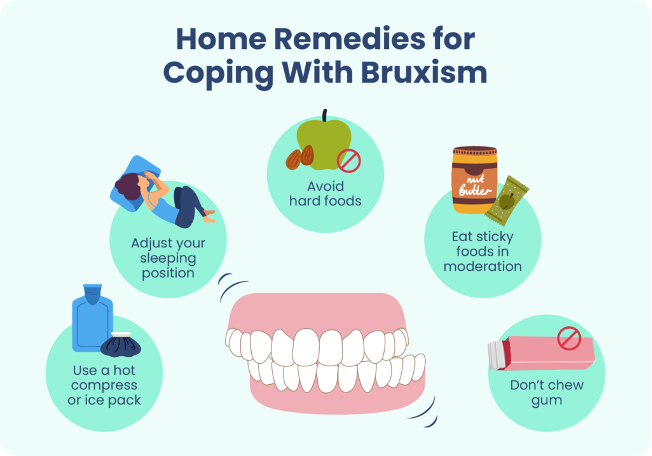Bruxism is the unconscious grinding or clenching of teeth.
It affects millions worldwide, yet often goes undiagnosed and untreated. This habitual behavior, often occurring during sleep, can lead to various dental and health issues if left unchecked.
In this issue, we will discuss this common sleep-related disorder referred to as Bruxism. Other related movement disorders also will be discussed.
Bruxism manifests in two primary forms: nocturnal bruxism, occurring during sleep, and diurnal bruxism, happening while awake. Day-time teeth grinding is often associated with stress or anxiety, while the sleep-time grinding may be related to sleep disorders, such as sleep apnea. Individuals experiencing bruxism may exhibit symptoms like jaw pain, headaches, tooth sensitivity and worn-down teeth.
Moreover, underlying psychological stress or trauma can worsen bruxism, making it necessary to address both the symptoms and their root causes.
The Impact of Trauma:
Trauma, whether it’s physical or emotional, can significantly contribute to bruxism. Research suggests a correlation between traumatic experiences and increased prevalence of teeth grinding and clenching. Individuals who have undergone trauma may subconsciously manifest their stress through bruxism, leading to further complications in dental health and overall well-being.
Dental Health Concerns:
Persistent bruxism can result in serious dental issues, including enamel erosion, tooth fractures, and temporomandibular joint (TMJ) disorders. The constant pressure and friction exerted on teeth can weaken their structure over time, potentially requiring extensive dental interventions like crowns, bridges, or even tooth extractions.
Health Implications:
Beyond dental concerns, bruxism can impact overall health. Chronic bruxism has been linked to headaches, earaches, and facial pain, disrupting sleep patterns and contributing to fatigue. Moreover, the continuous strain on the jaw muscles can lead to temporomandibular joint disorders, causing discomfort and limited jaw mobility.
Managing Bruxism:
Effective management of bruxism requires a multifaceted approach addressing both symptoms and underlying causes. Dental professionals often recommend the use of custom-fitted mouthguards to protect teeth from grinding during sleep. Additionally, stress-reducing techniques such as relaxation exercises and cognitive-behavioral therapy can help alleviate bruxism associated with psychological stress or trauma.
Seeking Support:
Individuals experiencing bruxism should seek professional dental advice to assess the severity of their condition and explore treatment options. Dentists can provide personalized recommendations and interventions tailored to each individual’s needs, whether through oral appliances, stress management techniques, or referrals to mental health professionals.
Raising Awareness:
Raising awareness about bruxism is crucial to destigmatize the condition and encourage individuals to seek timely treatment. Educational initiatives highlighting the signs, symptoms, and potential consequences of bruxism can empower individuals to recognize and address the condition proactively, promoting better oral and overall health outcomes.
Bruxism, experienced through teeth grinding and clenching, poses significant challenges to dental health and overall well-being. Understanding the relationships between bruxism, stress, and trauma is essential for effective management and prevention of any complications. By promoting awareness, providing support, and addressing underlying causes, we can combat bruxism and improve the quality of life for millions of patients worldwide.
Let us strive for healthier smiles and happier lives, free from the burden of bruxism.
Dr. Kendal V. O. Major is Founder and CEO of Center for Specialized Dentistry which is a comprehensive family dental practice operating in Nassau. He is the first Bahamian Specialist in gum diseases and dental implants since 1989. He also is a certified Fast braces provider, having attained the milestone as Senior Mastership status. His practice is located at 89 Collins Avenue, Nassau at (242)325-5165 or [email protected].


Courtesy of Cleveland Clinic- Bruxism can cause teeth erosion, jaw pain and TMJ





